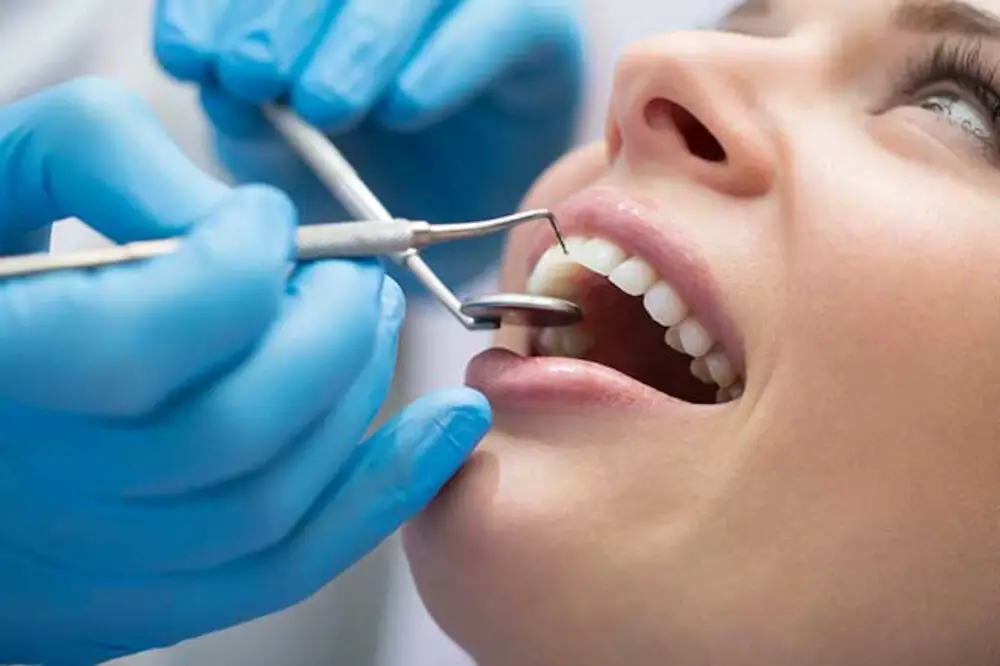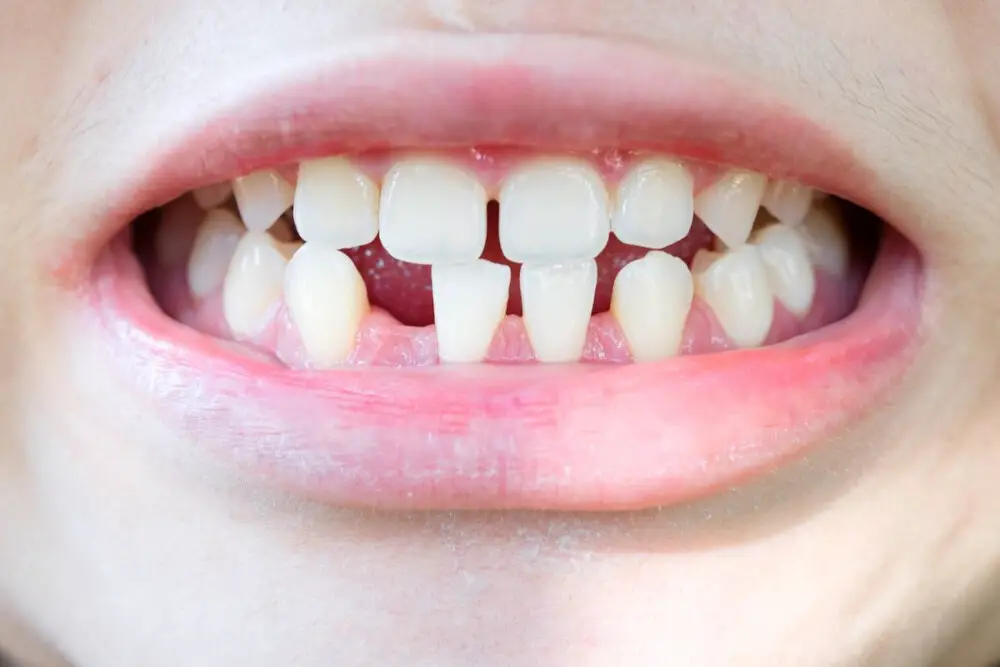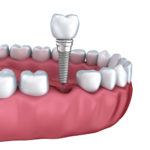Post Wisdom Teeth Removal: Can You Control Your Words?

The process of wisdom teeth removal is a common dental procedure that many people undergo at some point in their lives. It involves the extraction of the third set of molars, which can cause discomfort, pain, and even infection if left untreated. However, what many people don’t realize is that the aftermath of this procedure can also have unexpected consequences. One of the most common concerns after wisdom teeth removal is the ability to control one’s words. The human mouth is home to a complex system of muscles, nerves, and ligaments that work together to produce speech. When any part of this system is disrupted or injured, it can affect a person’s ability to speak clearly and coherently. This is particularly true after wisdom teeth removal, as the extraction process can cause swelling, pain, and discomfort that can make it difficult to form words properly. In some cases, patients may even experience slurred speech or difficulty pronouncing certain sounds. As a result, it’s important to understand the potential impact of wisdom teeth removal on speech and take steps to minimize any negative effects.
Wisdom teeth are the third molars that usually grow in the late teens or early twenties. However, due to limited space in the mouth, they often become impacted and can cause discomfort, pain, and infection. Therefore, wisdom teeth removal is a common dental procedure that involves the surgical extraction of these molars. The procedure is typically performed under local or general anesthesia, depending on the patient’s preference and the complexity of the extraction. After the surgery, patients may experience swelling, pain, and bleeding, and they are advised to follow specific post-operative instructions to promote healing and reduce the risk of complications. While the recovery process can be uncomfortable, it is crucial to take good care of oneself, including controlling one’s words, to ensure a successful and speedy recovery.
The importance of controlling words cannot be overstated, especially after wisdom teeth removal. Words can have a powerful impact on those around us, and in the post-surgery phase, it is crucial to be mindful of how we communicate. Using hurtful or negative language can not only cause emotional harm but can also hinder the healing process. Additionally, using certain words or phrases can lead to unintended consequences, such as making someone anxious or worried. By controlling our words, we can create a more positive and supportive environment for ourselves and those around us, ultimately aiding in a faster and smoother recovery. It is essential to be expressive and variable in our vocabulary, but also mindful of the impact our words can have.
The purpose of the article \Post Wisdom Teeth Removal Can You Control Your Words\ is to explore the phenomenon of patients saying things they may not have intended to after having their wisdom teeth removed. The article delves into the potential causes of this behavior, such as the effects of anesthesia and pain medication, and offers advice for patients on how to prevent themselves from saying something they may regret. The article aims to inform and educate readers on this topic and provide them with tools to better manage their behavior after undergoing this common dental procedure.
What Happens After Wisdom Teeth Removal?

After wisdom teeth removal, it is common to experience some discomfort and swelling in the affected area. The recovery period can last up to a week or more, depending on the individual’s healing process. It is recommended to rest and avoid strenuous activities during the first few days after the procedure to allow the body to recover. Pain medication and cold compresses can also help alleviate any discomfort or swelling. During the recovery period, it is crucial to follow the dentist’s instructions on proper oral hygiene, such as gently rinsing the mouth with saltwater to prevent infection. It is also essential to avoid consuming hard, crunchy, or hot foods to prevent irritation to the surgical site. While it may be tempting to resume normal activities and socialize with others, it is important to be mindful of the words spoken. Talking too much or too vigorously can cause bleeding or dislodge the blood clot that forms over the surgical site, leading to a painful condition known as dry socket. Therefore, it is best to limit talking and rest as much as possible until fully recovered.
The healing process is a complex physiological and biological response of the body to an injury or trauma. When wisdom teeth are removed, the body’s natural healing process kicks into gear immediately. Blood clots form to stem the flow of blood and protect the socket from infection. Over the next few days, new tissue forms over the wound, and the socket gradually fills up with bone, eventually becoming fully healed. Pain, swelling, and bleeding are common in the first few days after surgery, but they gradually subside as the body heals itself. Proper post-operative care, including rest, hydration, and pain management, can help optimize the healing process and minimize discomfort.
After a wisdom teeth removal procedure, some patients may experience common side effects such as swelling, bleeding, and pain. Swelling usually peaks within the first 48 hours and can be managed with the use of ice packs. Bleeding is also common and can be controlled by biting down on gauze or a tea bag. Pain can be managed with over-the-counter pain relievers or prescribed medication from the dentist. It is important to follow post-operative instructions carefully to minimize these side effects and ensure a smooth recovery. While these side effects may be uncomfortable, they are a normal part of the healing process and typically subside within a few days.
Aftercare instructions are essential to follow, especially after wisdom teeth removal. These instructions are given by the dentist or oral surgeon to ensure proper healing and prevent complications. Following the instructions can reduce pain, swelling, and the risk of infection. Failing to follow the aftercare instructions can lead to dry socket, bleeding, and prolonged healing time. Patients are advised to rest, avoid smoking, and stick to soft foods for a few days. They may also need to apply ice packs to reduce swelling and take pain medication as prescribed. Overall, following the aftercare instructions is crucial for a successful and comfortable recovery after wisdom teeth removal.
The Impact of Pain Medication on Speech

Post-surgical pain medication can have a significant impact on speech. Patients who undergo dental surgeries, such as wisdom tooth removal, are often prescribed opioid pain medication to manage pain and discomfort. While these medications can be highly effective in reducing pain, they can also cause drowsiness, confusion, and slowed speech. As a result, patients may find it difficult to communicate clearly or express themselves effectively during the recovery period. It is important for patients to understand the potential impact of pain medication on speech and take steps to manage any communication difficulties that may arise. The effects of pain medication on speech can vary depending on the type of medication, dosage, and individual patient factors. Some patients may experience mild drowsiness or slowed speech, while others may have more significant issues with communication. In some cases, patients may also experience dry mouth or difficulty swallowing, which can further complicate speech. To minimize the impact of pain medication on speech, patients should follow their doctor’s instructions closely and avoid taking more medication than prescribed. They should also stay well-hydrated and avoid activities that require clear communication until they feel fully alert and able to communicate effectively.
Pain medication can have a significant impact on a person’s speech following wisdom teeth removal. These medications, such as opioids, can cause drowsiness, dizziness, and confusion, which can lead to slurred or slowed speech. Additionally, pain medication can dry out the mouth and throat, making it harder to speak clearly. It’s important for patients to follow their dentist or surgeon’s instructions for pain management carefully and to avoid driving or operating heavy machinery while taking these medications. If speech difficulties persist, it’s essential to consult with a healthcare provider to ensure that there are no underlying issues.
Slurred speech and difficulty enunciating words are common side effects after wisdom teeth removal. These symptoms can be attributed to the anesthesia used during the procedure, which can affect the nerves in the mouth and tongue. While these side effects can be concerning, they are usually temporary and will resolve on their own as the anesthesia wears off. It is important to follow post-operative instructions carefully to ensure a smooth recovery, and to avoid activities that could further irritate the mouth or cause additional discomfort. If symptoms persist or worsen, it is important to contact your dental professional for further evaluation and treatment.
When taking pain medication after wisdom teeth removal, it is important to be aware of the potential effects on speech. One tip for managing speech is to be expressive and variable in your vocabulary. This means using a wide range of words and phrases to convey your message, rather than relying on a small set of repetitive phrases. Additionally, taking pauses between sentences and speaking slowly can also help to improve clarity and reduce slurring. It is also important to avoid alcohol and other substances that may exacerbate the effects of pain medication on speech. By being mindful of these tips, you can manage your speech while taking pain medication and communicate effectively with those around you.
The Role of Anesthesia

Anesthesia plays a crucial role in ensuring that patients remain comfortable and pain-free during dental procedures such as wisdom teeth removal. The use of anesthesia allows dental professionals to perform the necessary procedure without causing patients unnecessary pain or discomfort. There are several types of anesthesia that can be used during dental procedures, including local anesthesia, general anesthesia, and sedation. Local anesthesia is the most commonly used type of anesthesia for dental procedures, as it numbs the area being worked on without causing the patient to lose consciousness. General anesthesia, on the other hand, causes the patient to become unconscious and is typically used for more complex procedures. Sedation is a mild form of anesthesia that helps patients relax and feel less anxious during their procedure. It is important to note that while anesthesia can help patients remain comfortable during dental procedures, it can also have side effects. Some patients may experience nausea, headaches, or dizziness after receiving anesthesia. Additionally, there are certain risks associated with anesthesia, such as allergic reactions or breathing difficulties. Dental professionals must carefully evaluate each patient’s medical history and overall health before administering anesthesia to ensure that it is safe for them to receive. Despite these potential risks, the use of anesthesia remains an essential aspect of modern dental care, allowing patients to receive necessary procedures without experiencing unnecessary pain or discomfort.
Anesthesia is a medication given before or during a surgical procedure to make the patient unconscious or numb to pain. Although it is a vital part of modern medicine, anesthesia can have several side effects, including affecting speech. The drugs used in anesthesia can cause temporary changes in the brain and nervous system, leading to slurred speech or difficulty speaking clearly. Additionally, the process of intubation, in which a tube is inserted into the patient’s throat to help them breathe, can cause swelling and irritation, further affecting speech. It’s essential to be aware of these potential side effects and follow the post-operative instructions provided by your doctor to prevent any complications after surgery.
Post wisdom teeth removal, it is common to experience side effects like grogginess and confusion. Grogginess is characterized by a feeling of drowsiness or fatigue, which can last for several hours after the surgery. This is due to the anesthesia used during the procedure, which can make you feel disoriented and sleepy. Confusion, on the other hand, is caused by the trauma to the jaw and mouth during the surgery. It can make it difficult to speak clearly or remember things properly. Although these side effects are normal and should subside within a few days, it is important to take care of yourself and avoid activities that require mental or physical exertion until you feel fully recovered.
When it comes to managing speech while under the effects of anesthesia, there are a few tips that can come in handy. Firstly, it’s important to remember that the effects of anesthesia can cause slurred speech and difficulty forming words, so it’s best to keep your sentences short and simple. Secondly, try to speak slowly and clearly, as this can help to prevent any misunderstandings or confusion. Lastly, it’s important to have someone with you who can act as a support system and help you communicate effectively if needed. By following these tips, you can minimize any potential communication issues and ensure that your recovery from wisdom teeth removal goes as smoothly as possible.
Controlling Your Words During Recovery

Controlling your words during recovery after wisdom teeth removal is essential. The process of wisdom teeth extraction can be quite painful, and your mouth may be swollen and sore for a few days. While undergoing recovery, it is important to watch what you say and how you say it. Avoid speaking too loudly or forcefully, as this can put pressure on your jaw and cause discomfort. Additionally, try to avoid using words or phrases that may cause stress or anxiety, such as negative self-talk or complaints about the pain. Instead, focus on positive affirmations and calming words that will help you relax and heal. Furthermore, it is important to be mindful of the words you use when communicating with others during your recovery. Be clear and concise in your communication, and avoid talking for extended periods of time. If you find that your mouth is becoming sore or tired, take breaks in your conversations to rest your jaw. Additionally, be patient with yourself and others, as recovery can be a slow and frustrating process. Remember that healing takes time, and it is important to prioritize your health and well-being during this time. By controlling your words and being mindful of your communication, you can help ensure a smooth and successful recovery after wisdom teeth removal.
Recovery after wisdom teeth removal can be challenging, especially when it comes to communication. To communicate effectively during this period, it is important to be clear and concise in your speech, avoiding any unnecessary words or phrases that may cause confusion. Additionally, using a variety of vocabulary can help you express your thoughts and feelings more accurately. It is also essential to be patient and take your time when speaking, as talking too quickly or forcefully can cause discomfort or pain. Finally, if you are having difficulty communicating, consider using alternative methods such as writing or gesturing to help get your message across. By following these strategies, you can ensure that your communication remains effective and efficient during your recovery period.
Effective communication is the key to avoiding misunderstandings and conflicts. It is important to be clear and concise when expressing your thoughts and feelings. Avoid making assumptions and ask questions to clarify any confusion. Be mindful of your tone and body language as they can convey different meanings. Listen actively and avoid interrupting the other person. If a conflict arises, try to approach it with an open mind and seek to understand the other person’s perspective. Use \I\ statements instead of \you\ statements to avoid blaming and defensiveness. By practicing these communication skills, you can maintain positive relationships and minimize misunderstandings and conflicts.
After undergoing wisdom teeth removal, it is important to exercise patience and understanding with both yourself and others. The recovery period can be uncomfortable and frustrating, and it is easy to become irritable or short-tempered. By remaining patient with yourself, you can avoid becoming overwhelmed with negative emotions and focus on healing. Being understanding with others is also crucial during this time, as they may not be aware of the pain and discomfort you are experiencing. By communicating your needs clearly and calmly, you can avoid misunderstandings and ensure that everyone is on the same page. Ultimately, practicing patience and understanding can help you navigate the post-surgery period with grace and ease.
After undergoing wisdom teeth removal surgery, it is crucial to control your words and avoid any excessive talking or laughing, as it can cause a range of complications, including bleeding and dry socket. Talking or laughing too much may also cause swelling and discomfort in the affected area, making the recovery process more difficult. Additionally, using straws or smoking can also delay the healing process, as the suction can remove the blood clot that forms in the socket. Therefore, it is essential to follow your dentist’s instructions and take proper care of your mouth to ensure a speedy recovery and avoid any further complications.
In conclusion, wisdom teeth removal can be a daunting experience, but with proper care and attention, you can ensure a successful recovery. It is crucial to follow your dentist’s instructions carefully, including taking prescribed pain medication and avoiding certain foods and activities. Additionally, maintaining good oral hygiene by gently brushing and rinsing your mouth can help prevent infection and promote healing. Remember to be patient with yourself and allow your body time to heal. If you experience any unusual symptoms or complications, don’t hesitate to contact your dentist for further guidance. By taking these steps, you can control your words and enjoy a healthy, pain-free mouth in no time.
Conclusion

In conclusion, post wisdom teeth removal can be a challenging experience, and it is understandable to feel a bit out of control when it comes to speaking. However, it is important to remember that with a little bit of effort and mindfulness, you can still communicate effectively and clearly. Utilizing techniques such as speaking slowly, enunciating clearly, and taking breaks when needed can help you regain control of your words. Additionally, it is essential to communicate any concerns or difficulties with your dentist or oral surgeon so that they can provide you with the necessary support and guidance during your recovery. Ultimately, with patience, practice, and the right mindset, you can successfully navigate the post-wisdom teeth removal period and maintain effective communication with those around you.






